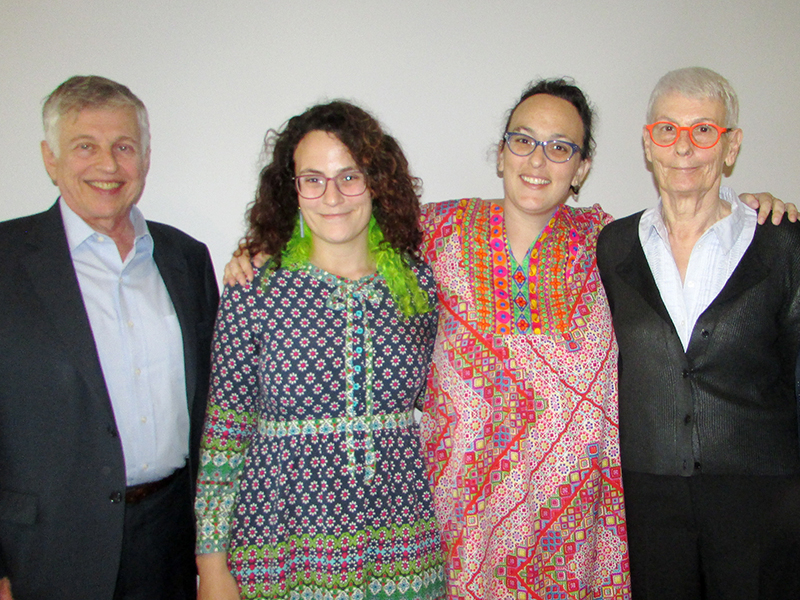Orna Berry remembers that when she first arrived in Beersheba, Israel, in 1967, it was not uncommon to see a camel in her backyard.
Today, the Negev Desert city is a bustling tech hub, thanks to collaborations between academia, industry, the military and government that, she says, is an example that should be followed around the world.
Berry was hailed as “the undisputed first lady of Israeli high tech” by McGill University, which bestowed her with an honorary doctor of science degree on May 30.
The day before, she spoke at a program organized by the Canadian Associates of Ben-Gurion University of the Negev (CABGU).
READ: HILLEL NEUER, ORNA BERRY TO RECEIVE HONORARY DEGREES FROM MCGILL
“This is modern Zionism, if Zionism means building a strong homeland,” Berry said.
Developing Israel’s south requires not only creating professional and business opportunities, but also fostering a sense of community and quality of life that keeps people in the region. That means good jobs, affordable housing and quality education, all of which she has fought for.
“You (also) have to give people the motivation to make a societal contribution, not only a professional contribution,” she said, noting that the progress of the south is essential to the country as a whole.
Berry was Israel’s chief scientist from 1997 to 2000. She was the first woman to hold the position, which is the highest in the Economy Ministry’s Israel Innovation Authority. She also has over 30 years’ experience as an entrepreneur and executive in the science, technology and venture capital fields.

In February, she retired as vice-president and general manager of research and development at Dell EMC. She joined EMC in 2010 and during her tenure, the company expanded its operations in Israel, opening an R&D site in Beersheba, as well as Haifa. EMC merged with Dell in 2016.
Earlier, she co-founded ORNET Data Communications, which was acquired by Siemens. As McGill noted, Berry has also been at the forefront of integrating more women into the corporate and scientific worlds.
Berry thinks that collaboration between sectors is essential in Israel. Thirty to 40 per cent of its economy relies on exports and companies are competing for market share. The country’s universities must work with each other and with industry, and Israel must be open to foreign investment and global partnerships, she said.
Commenting on the honour from McGill, Berry said she felt humbled to be recognized by a “top” university. “This is not a gender issue; what I care about is what is achieved,” she said.
This is modern Zionism.
– Orna Berry
Her daughter, Yael Berry-David, joined her at the CABGU event, describing her own efforts to make Beersheba a livable place through arts and culture.
Berry-David and her husband moved to the city 14 years ago, deciding he would do his PhD in quantum physics at BGU rather than UC Berkeley. The fact that housing was “dirt cheap” at the time was a factor, she admits.
They thought they would move back to central Israel – “where normal people live” – after a few years. But after a couple of years and a couple of children, Berry-David discovered another side of Beersheba – its creative vitality and burgeoning community life. The family realized that they belonged in the Negev.
Some BGU literature undergraduates had opened a used bookstore that became a mecca for musicians. An occasional show snowballed into performances every night, she said, including acts by her husband and herself, who started a band.
A theatre was started by a grassroots troupe, which developed into a fringe festival with venues around the city. Since 2016, the troupe has been touring abroad, including in Montreal last year. The Montreal Jewish community has been twinned with Beersheba for decades, through Combined Jewish Appeal.

Now, Berry-David is turning her sights on the visual arts, to provide opportunities for artists. This is bringing together people of different religious and socio-economic backgrounds, she said.
“There is a general sense of pioneering in the air, which is infectious,” she said.
The CABGU event, hosted by the accounting firm Crowe BGK, was part of a series intended to acquaint the business community with what the university has to offer.
